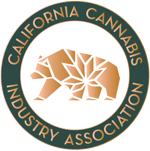Transform Your Workplace with Employee Incentive Programs
In today's competitive business landscape, employee satisfaction and motivation are key drivers of success.

In today's competitive business landscape, employee satisfaction and motivation are key drivers of success. One powerful way to achieve this is through well-designed employee incentive programs. These programs not only boost morale but also significantly impact productivity and retention rates. In this blog post, we will explore the five key benefits of employee incentive programs and provide practical tips on how HR professionals and business owners can implement them effectively.
Why Employee Incentive Programs Matter
Employee incentive programs are structured plans used by companies to reward employees for their performance and achievements. These programs can range from monetary bonuses to recognition awards and career development opportunities. Understanding the benefits of these programs is crucial for creating a motivated and high-performing workforce.
Boosting Employee Motivation and Morale
One of the primary benefits of employee incentive programs is the boost in motivation and morale they provide. When employees know their hard work will be recognized and rewarded, they are more likely to put in the extra effort. This can lead to increased productivity and a more positive work environment. For instance, a sales team might be more driven to meet their targets if they know there are substantial rewards awaiting them.
Fostering a Positive Work Environment
A workplace that regularly acknowledges and rewards its employees tends to foster a positive and collaborative culture. When employees feel appreciated, they are more likely to support each other and work together towards common goals. This sense of camaraderie and mutual respect can significantly enhance the overall work environment.
Enhancing Employee Engagement
Engaged employees are more committed to their work and the organization's success. Incentive programs can play a pivotal role in enhancing employee engagement by providing tangible recognition of their efforts. This recognition helps employees feel valued and connected to the company, increasing their overall job satisfaction.
Increasing Productivity and Performance
Incentive programs can also lead to significant improvements in productivity and performance. When employees are motivated by rewards, they are more likely to go above and beyond in their roles. This can result in higher output levels and better quality work, ultimately benefiting the organization as a whole.
Setting Clear Performance Goals
To maximize the effectiveness of incentive programs, it is essential to set clear and achievable performance goals. Employees should know exactly what is expected of them and how they can attain the rewards. This clarity helps in aligning individual efforts with the company's objectives, ensuring that everyone is working towards the same targets.
Encouraging Healthy Competition
Healthy competition among employees can drive performance and innovation. Incentive programs can create a competitive atmosphere where employees strive to outperform each other in a positive manner. This competition can lead to improved efficiency and creative solutions to challenges, benefiting the organization.
Enhancing Employee Retention
High turnover rates can be costly and disruptive for any organization. Employee incentive programs can significantly improve retention rates by enhancing job satisfaction and loyalty. When employees feel valued and rewarded, they are more likely to stay with the company long-term.
Building Loyalty and Commitment
Rewarding employees for their hard work and dedication fosters a sense of loyalty and commitment to the organization. Employees who feel appreciated are less likely to seek opportunities elsewhere, reducing turnover rates and retaining valuable talent within the company.
Reducing Recruitment Costs
By improving retention rates, incentive programs also help reduce recruitment costs. Hiring and training new employees can be expensive and time-consuming. Retaining existing employees who are already familiar with the company's processes and culture is more cost-effective and ensures continuity in operations.
Attracting Top Talent
In addition to retaining existing employees, attractive incentive programs can also help attract top talent to the organization. In today's competitive job market, potential employees often look for companies that offer comprehensive reward systems. A well-structured incentive program can make your company stand out as an employer of choice.
Highlighting Company Culture
An effective incentive program reflects a company's culture and values. By promoting a culture of recognition and reward, you can attract candidates who align with your organization's mission and vision. This alignment can lead to better cultural fit and higher employee satisfaction.
Offering Competitive Benefits
Incentive programs can be a competitive advantage in attracting top talent. Candidates are more likely to consider job offers that include attractive rewards and recognition systems. This can give your company an edge in recruiting the best and brightest in the industry.
Driving Innovation and Creativity
Innovation and creativity are critical for any organization's growth and success. Employee incentive programs can encourage employees to think outside the box and come up with innovative solutions. By rewarding creative ideas and initiatives, companies can foster a culture of continuous improvement and innovation.
Encouraging Idea Generation
Incentive programs can be designed to reward employees for generating new ideas and proposing innovative solutions. This encourages employees to actively participate in the company's growth and development by contributing their unique perspectives and insights.
Supporting Risk-Taking
Innovation often involves taking risks and trying new approaches. Incentive programs that reward calculated risk-taking can encourage employees to experiment with new ideas without fear of failure. This support can lead to breakthrough innovations and significant advancements for the organization.
Implementing Effective Employee Incentive Programs
Designing and implementing an effective employee incentive program requires careful planning and consideration. Here are some practical tips to help HR professionals and business owners create successful programs:
Define Clear Objectives
Before implementing an incentive program, it is essential to define clear objectives. What do you hope to achieve with the program? Whether it's boosting productivity, improving retention, or driving innovation, having clear goals will guide the design and execution of the program.
Tailor Programs to Employee Needs
Different employees are motivated by different rewards. It is important to tailor incentive programs to meet the diverse needs and preferences of your workforce. This could include offering a mix of monetary bonuses, recognition awards, and career development opportunities.
Communicate and Promote the Program
Effective communication is crucial for the success of any incentive program. Ensure that employees are aware of the program and understand how they can participate. Regularly promote the program through internal communications and provide updates on rewards and achievements.
Monitor and Evaluate
Continuous monitoring and evaluation are essential to ensure the program's effectiveness. Collect feedback from employees and track the program's impact on performance and engagement. Use this data to make necessary adjustments and improvements.
Build a motivated and high-performing workforce
Employee incentive programs are a powerful tool for enhancing motivation, productivity, retention, and innovation within an organization. By recognizing and rewarding employees' efforts, companies can foster a positive work environment, attract top talent, and drive business success. HR professionals and business owners should consider implementing well-structured incentive programs to unlock the full potential of their workforce.
Ready to transform your workplace? Start by designing an employee incentive program that aligns with your organization's goals and values. Engage your employees, recognize their contributions, and watch as your business thrives.
For further insights and personalized assistance, reach out to our team of experts who can help you create and implement effective incentive programs tailored to your unique needs. Let's build a motivated and high-performing workforce together.
1026 SW 9th St, Suite F
Ocala, FL 34471
Customer Contact Hours
For 24/7 After-Hours Support,
Call (800) 420-7931
Honolulu Office
500 Ala Moana Blvd,
Suite 7400, Honolulu,
HI 96813
Hours of Operation
Monday – Friday:
8:00 a.m. – 5:00 p.m.

All Rights Reserved | SkyHigh PEO
Developed and designed by BlueZoo Web












